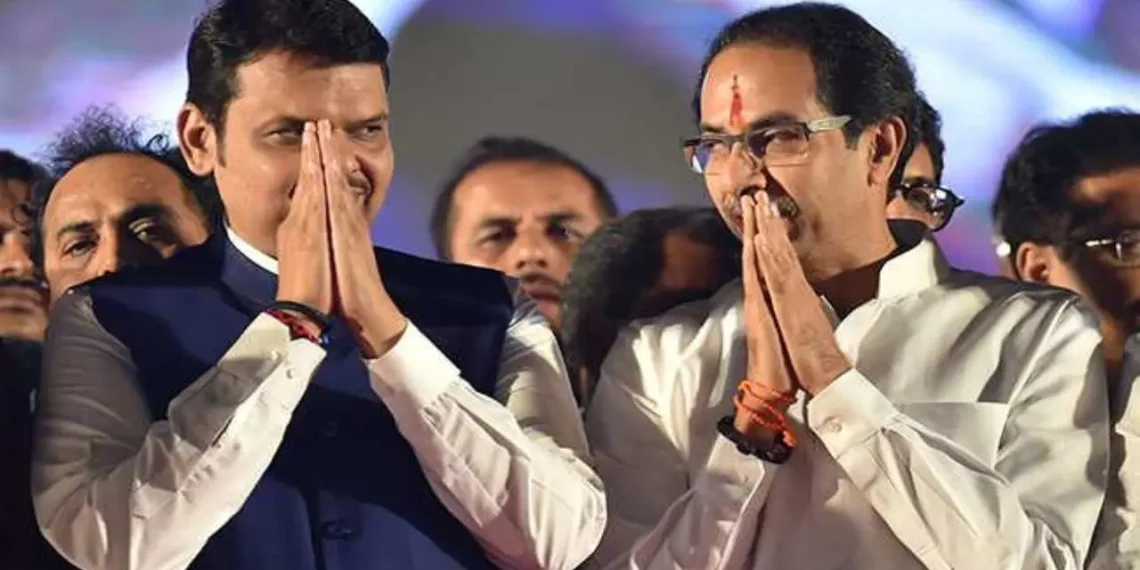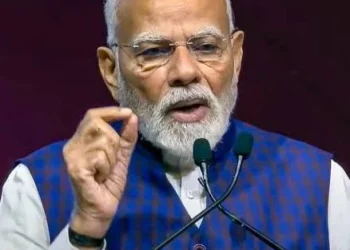BY PC Bureau
The political scene in Maharashtra, often marked by unexpected turns and alliances, might witness a significant shift as talks of a possible reunion between the Shiv Sena (Uddhav Thackeray faction) and the Bharatiya Janata Party (BJP) surface once again. Although the 2019 split between the two parties left deep divides, recent developments hint at the possibility of a thaw in relations. Key political events and strategic shifts are paving the way for discussions on this potential reunion.
WATCH VIDEO: https://x.com/aajtak/status/1875199754449355120
Historical Context of Shiv Sena-BJP Relations
Shiv Sena and BJP have historically been close allies, sharing a similar ideological foundation centered around Hindutva. However, the fallout began in 2019 when disagreements over the chief ministerial post led to a dramatic break-up. Since then, Uddhav Thackeray aligned with the NCP and Congress to form the MVA government, while BJP became the major opposition force in the state.
Recent Developments That Hint at a Possible Reunion
- Meeting between Uddhav Thackeray and Devendra Fadnavis:
In a significant political development, Uddhav Thackeray recently met with Chief Minister Devendra Fadnavis. While the details of their discussions remain unclear, the very act of this meeting signals a potential shift in their strained relationship. Given the complexities of the Maharashtra political landscape, the meeting could signal the beginning of dialogue and a possible reconciliation between their factions.
- Editorial in Samna:
In the latest issue of Shiv Sena’s mouthpiece Samna, there was a notable editorial that lauded Fadnavis. The editorial offered a veiled hint at the possibility of a future alliance between Shiv Sena and BJP, even if the parties’ immediate political goals were not aligned. This editorial raised eyebrows within political circles and fueled speculation about a thaw in relations.
Prime Minister Narendra Modi’s influence over Maharashtra’s political scenario cannot be understated. His leadership has provided the BJP with a stronger foothold in the state, and the Modi factor might help bridge the gap between the Shiv Sena and BJP. If Uddhav Thackeray sees aligning with the BJP as essential for maintaining relevance, it could push both parties toward reconciliation.
Challenges to a Reunion
Despite these signals, several obstacles remain. The animosity between the two parties after the 2019 split is still palpable, and trust remains a major issue. Furthermore, leadership disagreements could resurface, as both Uddhav Thackeray and Devendra Fadnavis have significant political ambitions. The prospect of sharing power would require careful negotiation and compromise.
Secondly, it remains to be seen how the NCP (led by Pawar) and Shiv Sena (Shinde faction) will adapt to this new political scenario. It is clear that Uddhav Thackeray will consider aligning with the BJP only if he can regain control over the unified Shiv Sena. The most likely scenario being discussed in political circles is that Uddhav Thackeray would assume the presidency of the reunited Shiv Sena, with Eknath Shinde continuing in his role as deputy chief minister.
While a Shiv Sena-BJP reunion is not guaranteed, the changing dynamics of Maharashtra politics and the evolving national political landscape suggest that the two parties might be willing to put their differences aside for the greater good of their political future. A potential alliance could reshape the political contours of the state, offering both parties a chance to capitalize on the growing discontent with the current government.
However, it is also possible that the renewed talks between Uddhav Thackeray and Devendra Fadnavis are merely exploratory, with no immediate alliance in sight. The evolving political scenario in Maharashtra will continue to be shaped by the strategies and moves of both parties, and only time will tell whether the Shiv Sena and BJP will find common ground again.














